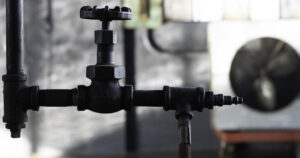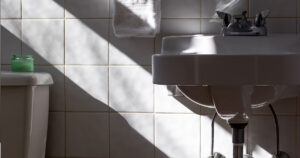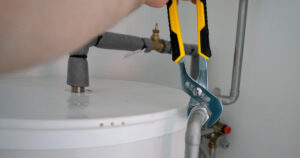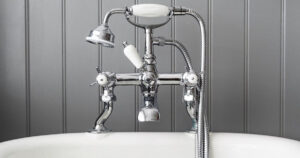
Frustrated by Frequent Clogs? Uncover Kitchen Plumbing Solutions Now!
Summary
Discover the secrets to keeping your kitchen sink clog-free and your plumbing running smoothly with our expert kitchen plumbing solutions! From tackling stubborn clogs to adopting energy-efficient practices, this article unveils the smart tips and techniques you need to maintain a trouble-free kitchen. Learn how to avoid common culprits like grease and food residue buildup, coffee grounds, and fibrous food waste, and find out why regular drain cleaning and professional inspections are essential. Don't miss out on the chance to wipe out wasteful spending on plumbing issues – read the full article now and take control of your kitchen's plumbing!
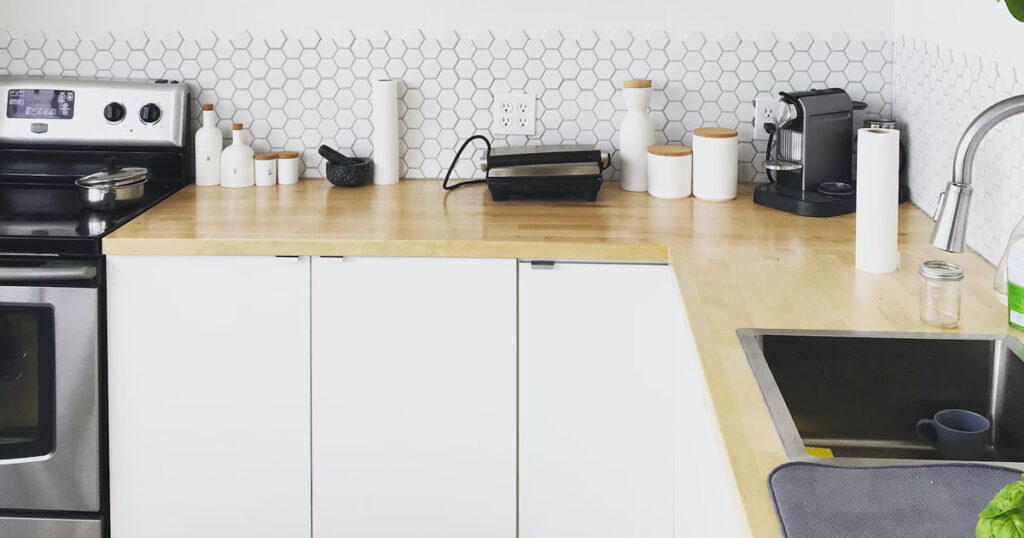
The Mystery of Clogged Kitchen Sinks: Unraveling the Culprits!
We’ve all been there – the dreaded kitchen sink clog that seems to happen at the most inconvenient times. Whether it’s a pile of dirty dishes waiting to be washed or a big family gathering with lots of cooking, a clogged sink can quickly become a major frustration. But fear not! In this comprehensive guide, we’ll dive into the reasons behind those stubborn clogs and, more importantly, unveil a range of smart and effective kitchen plumbing solutions to keep your drains running smoothly. With over 45 years of experience serving the North Atlanta area, the experts at Aaron Plumbing have seen it all, and we’re here to share our knowledge and insights to help you avoid clogging nightmares once and for all.
Understanding the Culprits Behind Kitchen Sink Clogs
Grease and Food Residue Buildup
One of the primary reasons for kitchen sink clogs is the buildup of grease and food residue. It’s easy to wash cooking oil, grease, and leftover food particles down the drain, but over time, they can accumulate and form a sticky, sludgy mess inside the pipes. This buildup restricts water flow and provides the perfect breeding ground for other debris to catch onto, leading to stubborn clogs that can be challenging to remove.
Coffee Grounds and Eggshells
Coffee grounds and eggshells may appear harmless, but they can be problematic for your kitchen sink. These items do not break down easily and can clump together in the pipes, creating blockages that hinder water drainage. Additionally, coffee grounds can mix with grease and exacerbate clogs, while eggshells’ hard and gritty texture can contribute to pipe obstructions.
To combat these common culprits and prevent kitchen sink clogs, it’s crucial to adopt proactive measures and mindful practices. Consider the following tips to maintain a smooth-running kitchen plumbing system:
- Use sink strainers to catch food particles and prevent them from entering the drain.
- Dispose of cooking grease properly by collecting it in a separate container and throwing it in the trash.
- Scrape food waste into the trash or compost bin before washing dishes.
- Avoid washing coffee grounds and eggshells down the disposal; opt for alternative disposal methods.
- Run cold water while using the garbage disposal to solidify grease and fats for easier breakdown.
By taking these preventive measures and being mindful of what goes down your kitchen sink, you can keep your drains clear and avoid the hassle of frequent clogs. Additionally, regular drain cleaning and professional plumbing inspections will help address any potential issues before they escalate into significant problems.
Fibrous Food Waste
Fibrous foods such as celery, potato peels, and onion skins are notorious for causing clogs in the kitchen sink’s disposal unit. When these fibrous items are put down the disposal, they can wrap around the blades and create a tangled mess. This not only reduces the disposal’s efficiency but also increases the risk of clogs, as the fibrous material can trap other debris, further hindering water flow.
Kitchen Plumbing Solutions to Keep Drains Clear
Dispose of Cooking Grease Properly
One of the most common culprits of kitchen sink clogs is cooking grease. Instead of pouring grease down the drain, which can solidify and block the pipes over time, it’s essential to dispose of it properly. After cooking, allow the grease to cool and then collect it in a separate container. Once it’s cooled and solidified, you can scoop it into a sealable container and throw it away in the trash. This simple practice can go a long way in preventing clogs and maintaining clear drains.
Scrape Food Waste into the Trash
Before washing dishes or rinsing them in the sink, make it a habit to scrape off any food waste into the trash or compost bin. By doing so, you prevent food residue from accumulating in the pipes and causing blockages. Sink strainers are also useful in catching larger food particles that may accidentally slip into the drain. Regularly empty the strainer to ensure it remains effective in preventing debris from entering the plumbing system.
Avoid Putting Coffee Grounds and Eggshells Down the Disposal
Coffee grounds and eggshells are notorious for causing clogs in kitchen sink disposals. Rather than washing them down the disposal, consider alternative methods of disposal. Coffee grounds can be added to your compost bin, while eggshells can be crushed and used as natural fertilizer in your garden. By avoiding their disposal down the drain, you eliminate the risk of clogs and keep your kitchen plumbing running smoothly.
Run Cold Water While Using the Garbage Disposal
When using the garbage disposal, always run cold water simultaneously. Cold water helps to solidify any grease or fats present in the food waste, making it easier for the disposal to break them down. It’s also essential to avoid overloading the disposal with large quantities of food waste at once. Instead, feed the waste gradually to prevent jams and ensure efficient disposal operation. Following these practices will help you maintain a trouble-free garbage disposal and reduce the likelihood of clogs in your kitchen sink.
The Power of Routine Maintenance and Professional Assistance
Regular Drain Cleaning
Keeping your kitchen drains clean is a crucial aspect of maintaining a smooth and clog-free plumbing system. Over time, food particles, grease, soap residue, and other debris can accumulate in the pipes, leading to stubborn clogs. By scheduling regular drain cleaning, either through DIY methods or by hiring a professional plumber, you can prevent clogs from forming and ensure your pipes remain clear and functioning optimally. A simple yet effective practice is to pour boiling water down the drain once a week to help flush away any buildup.
Professional Inspections
While regular drain cleaning is essential, enlisting the help of a professional plumber for routine inspections is equally important. A skilled plumber can conduct thorough inspections of your kitchen plumbing system, identifying early signs of potential clogs or other plumbing issues that may not be immediately apparent to homeowners. By catching these issues early on, you can address them before they turn into major and costly problems. During the inspection, the plumber will also examine the pipes, connections, and other components to ensure everything is in good working order. Investing in professional inspections can save you from future headaches and expensive repairs down the road.
FAQ
Chemical drain cleaners can be effective for minor clogs, but they are not without risks. The harsh chemicals can damage pipes over time and may not be suitable for all types of plumbing systems. For a safer and more environmentally friendly approach, consider using natural methods or contacting a professional plumber for assistance.
While a garbage disposal can help break down some food waste, it’s not a catch-all solution. Avoid putting fibrous or starchy items, coffee grounds, and eggshells down the disposal to prevent clogs. Additionally, regular maintenance and proper usage are crucial to keeping the disposal in good working condition.
The frequency of drain cleaning depends on your usage and the condition of your plumbing system. For most households, scheduling drain cleaning once or twice a year is recommended to prevent clogs and ensure smooth drainage.
If you have a persistent clog that won’t budge, it’s best to avoid using chemical drain cleaners as they can damage pipes. Instead, try using a plunger or a drain snake to dislodge the clog. If the clog persists, it’s time to call a professional plumber for thorough and safe removal.
Regular maintenance is key to preventing future clogs. Avoid disposing of grease and food waste down the drain, use sink strainers to catch larger particles, and run cold water while using the garbage disposal. Additionally, consider scheduling professional drain cleaning and inspections to keep your kitchen plumbing in top shape. With these proactive measures, you can enjoy a clog-free kitchen and a stress-free cooking experience.
Sink Woes Solved: Embrace Smooth Drains and Hassle-Free Cooking!
In conclusion, understanding the common culprits behind kitchen sink clogs, such as grease and food residue buildup, coffee grounds and eggshells, and fibrous food waste, is crucial for preventing disruptions to your kitchen’s flow. By adopting energy-efficient kitchen plumbing solutions and implementing simple practices like proper grease disposal and using sink strainers, you can keep your drains clear and flowing freely. Remember to schedule regular drain cleaning and professional plumbing inspections to address potential issues proactively. For hassle-free kitchen experiences, trust Aaron Plumbing, Heating, and Cooling as your reliable partner in maintaining a smoothly running kitchen plumbing system. Contact us today to schedule your plumbing check-up and avoid the frustration of frequent clogs.

